NOT A GOOD LOOK FOR THE ZIMMERMANS

ORLANDO, Fla. — At her husband’s bond hearing, Shellie Zimmerman was asked repeatedly about money. Among the questions: How much did the couple collect in donations through George Zimmerman’s website?
“Currently, I do not know,” Shellie Zimmerman replied. She and other family members described their financial situation as dire. Judge Kenneth Lester granted George Zimmerman $150,000 bond on the second-degree-murder charge he faces in the death of 17-year-old Trayvon Martin.
But prosecutors say Shellie Zimmerman spent the days before that April hearing shifting tens of thousands of dollars out of her husband’s account, then deliberately lied to the judge.
On Tuesday, she was arrested on a perjury charge and booked into John E. Polk Correctional Facility. It’s the same jail her husband has called home since the deception was revealed earlier this month, leading the judge to revoke his bond.
“The prosecutor sent a strong message that you have to tell the truth in court because it is the whole basis of the American judicial system,” said Benjamin Crump, an attorney for Martin’s family, after learning of the new arrest.
In an affidavit, prosecutors revealed new details about Shellie Zimmerman’s alleged efforts to hide money from the court.
Four days before she testified to having no knowledge of the funds, the affidavit says, Shellie Zimmerman began a series of transfers into her account — totaling $74,000 from April 16 to April 19.
The affidavit says about $47,000 more was transferred from George Zimmerman’s account to his sister’s. Shellie Zimmerman withdrew about $18,000 more in cash, prosecutors say.
Prosecutors say the Zimmermans used a rudimentary “code” to discuss the money in recorded jailhouse phone calls — referring to $100,000, for example, as “$100.” At least two of the calls, the state alleges, were made while Shellie Zimmerman and her husband’s sister were at a local credit union making the transactions.
Zimmerman told his wife to “pay off all the bills” with the money, prosecutors said, including an American Express card and a Sam’s Club card. He also instructed her on how to pay his bail.
According to the affidavit, after her husband was released on bond days after the hearing, she transferred more than $85,000 back into his account. A branch manager at their credit union told prosecutors he knew the couple and saw Shellie Zimmerman talking to her husband on the phone April 16.
The manager said he had helped Shellie Zimmerman transfer control of George Zimmerman’s account, at one point speaking directly to George Zimmerman by phone.
Michael Grieco, a Miami defense lawyer and former prosecutor, has been critical of the state’s case against George Zimmerman — but said prosecutors have “a pretty strong perjury case” against Shellie Zimmerman.
As a prosecutor in a perjury case, “you have to establish that they know that they are making a false statement.” Normally, that’s a challenge, he said, because the prosecutor can’t “get in someone’s head.”
But the phone recordings and bank statements make the job easier in this case, he said.
Grieco said Shellie Zimmerman’s perjury charge should have no effect on her husband’s murder prosecution.
“It is a completely isolated and independent incident,” he said.
Shellie Zimmerman was arrested about 3:30 p.m. Tuesday, deputies said. She faces one count of perjury in an official proceeding — a third-degree felony. Her bail was set at $1,000, and she quickly bonded out.
George Zimmerman’s attorney, Mark O’Mara, said Tuesday night on his website that his law group would not represent Shellie Zimmerman because it would be a conflict of interest. She will hire independent counsel, according to the post.
George Zimmerman remains jailed without bail. He faces a second-degree-murder charge in the February shooting death of Martin. A second bond hearing is set for later this month.
DI HEAT IS ON!
Gary Spaulding, Senior Gleaner Writer

Investigators target accomplices for don’s wealth
FOLLOWING an order by district judge Robert Patterson in New York last week that gangster Christopher ‘Dudus’ Coke pay over US$1.5 million to the US Asset Forfeiture Unit, local law enforcement say they have intensified their search for the ill-gotten assets of confessed drug lord.
Deputy Commissioner of Police Glenmore Hinds told The Gleaner yesterday that the civil processes contained within the ambit of forfeiture law and the Proceeds of Crimes Act (POCA) are being applied to confiscate some of Coke’s assets.
Hinds said that the forfeiture efforts of the US and the local authorities are separate.
“Our efforts are separate and apart from that seizure of coke’s assets being pursued by the United States, it is a parallel process,” he asserted.
Hinds also said that relatives and associates of Coke who conspired to conceal the ill-gotten gains are under the radar of investigators.
“We are moving to identify the assets and that takes some time and then you go for the freezing of these assets and then for confiscation, the truth is, it is not the shortest process.”
“We are confident, that we will be able to confiscate some of these assets,” he added.
Coke, a director of Incomparable Enterprise, a company which received many lucrative government and private contracts in Jamaica, was last week sentenced to 23 years in prison for drug related offences.
Multimillion-dollar houses
He is allegedly the owner of at least two multimillion-dollar houses and several high-priced motor vehicles.
At the time of his sentencing in the US last week, district judge Robert Patterson ordered Coke to pay over US$1.5 million to the US Asset Forfeiture Unit.
“In connection with his guilty plea, Coke admitted to trafficking in over 3,000 kilograms of marijuana and l5 kilograms of cocaine in the United States … utilising even the most conservative wholesale values for those narcotics, US$200 per pound of marijuana and US$15,000 per kilogram of cocaine – the gross proceeds from the distribution of those narcotics is well in excess of US$1,500,000,” the prosecution successfully argued.
In the meantime, Hinds said local investigators are “actively pursuing every means and opportunity to carry out civil recovery through the civil forfeiture element of POCA.”
The senior policeman, however, noted that the process may be lengthy. He related the efforts of the police to seize millions of US dollars found in a refrigerator in Portmore, St Catherine nearly five years ago.
“You will recall that the last major confiscation we had started was four years before it was finally concluded and that was the one with the frozen assets of US$1.5 million which was found in a fridge in Portmore,” said Hinds. “It took us five years.
In 2010, the state moved to freeze Coke’s assets. At the time, attorney-at-law Paul Beswick accused the Government of attempting to seize the assets without giving the persons a fair chance to defend themselves.
However, Michael Hylton, QC, the attorney leading the case for the Asset Recovery Agency, dismissed the allegations at the time.
The Asset Recovery Agency went to court to freeze the assets of Coke, his mother Patricia Halliburton, his alleged girlfriend, Stephanie Gayle, businessman Justin O’Gilvie and others reportedly linked to the former west Kingston strongman.
The assets of three companies in which Coke is listed as a shareholder, Incomparable Enterprise, Bulls Eye Security and Presidential Click, have also been frozen as the Government attempts to use the Proceeds of Crime Act (POCA) to seize the assets.
Under Section 33 of the POCA, a judge can allow Coke and the others access to their accounts for “reasonable living expenses and reasonable legal expenses”, except for the legal bills related to attempts to seize the assets.
MARK SHIELDS A TALK UP
The British officer who changed policing in Jamaica
As Christopher ‘Dudus’ Coke awaits sentencing, Mark Shields explains how a two-month secondment turned into a new life
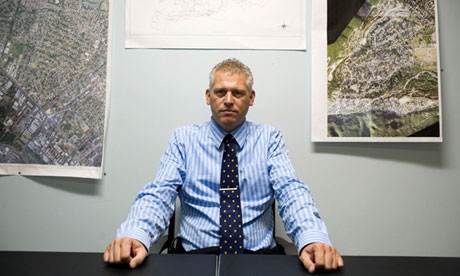
Decca Aitkenhead in Kingston
guardian.co.uk, Thursday 7 June 2012 10.40 EDT
Mark Shields in Kingston, Jamaica. Photograph: David Levene
On Friday Jamaica’s most notorious gangster will appear in court in New York to be sentenced for racketeering. By American standards, the 20 years Christopher “Dudus” Coke is facing may not sound terribly long, but his sentence will draw to a close one of the most explosive criminal cases in Jamaican history.
The country was almost brought to its knees two years ago, when Coke’s armed supporters flocked to the slums of Kingston to fight security forces battling to arrest and extradite the don to the US. A state of emergency was declared, buildings were burned, police stations bombed and more than 70 lives lost in the bloodbath.
Evidently, it takes a lot to convict a don. In Coke’s case it took the full force of American might – and most Jamaican murderers do not face anything like that. It’s quite difficult to convey the degree to which crime dominates life for many on an island home to fewer than three million people, of whom roughly 1,500 are murdered each year, making it one of the most murderous nations on the planet. So prolific are the killings that one newspaper’s fortnightly crime round-up subdivides them into categories: chopped to death, burned to death, poisoned and so on. There is also a category for all those shot by the police, and by the early 2000s the figure was averaging three a week. The history of corrupt and incompetent policing has been a national tragedy for Jamaicans, but they aren’t the only ones. What happens in Kingston will usually find its way on to the streets of Miami, Toronto, New York and London.
Which is why Mark Shields, a detective chief superintendent with the Met, was dispatched to Jamaica back in 2004. Officially, he had been invited by the Jamaican government. “But I suspect it was with one arm up their back,” Shields offers with a knowing smile. The UK government was spending a fortune trying to help Jamaica contain its crime problem, but was “extremely concerned about a particular individual”.
That individual wasn’t a gangster, but a senior Jamaican police officer, Reneto Adams. Adams and his team had distinguished themselves by killing four members of the public in a rural house in 2003. Adams insisted they had died in a shootout, but such was the suspicion surrounding the case that Shields was seconded to investigate. “What I thought would be a two-month assignment turned into two years. And throughout, we were told by everyone, you will never get Adams charged, and if you do he will never ever be convicted.”
They were wrong on the first count – but right about the second. “Unfortunately,” Shields says, choosing his words with care, “the jury was not persuaded.”
Shields will not say so, but everyone I know in Jamaica takes it for granted that the acquittal was essentially corrupt. But Shields had persuaded four officers to testify for the prosecution and on that basis he was invited to stay on in 2005 and become the country’s deputy police commissioner, bringing three assistants from UK police forces with him. More than 40 years after Jamaica’s independence, the British were back in charge of law and order.
Shields’s appointment created quite a sensation on the island. At 1.96 metres (6ft 5in) he would cut a striking figure anywhere, and Kingston was electrified by this glamorous foreigner who published his mobile phone number in a national newspaper, and invited people to call him directly to report crime. If Jamaicans were taken aback, Shields was pretty shocked himself by what he found in his new job.
“I went to homes where two or three generations were just charred remains in a burnt-out house. I’ve been to more shootings than you can imagine, and more funerals of police officers murdered on duty than I’d ever imagined possible. I remember a police officer’s five-year-old daughter taking a bullet in the chest.”
If anything, the police service itself was even more shocking. “When I first got here, there was a very inward-looking, nepotistic culture. They were hated by most of the public in Jamaica, because fatal shootings were running at a ridiculously high rate, corruption was out of control, from top to bottom. Anything from allowing drugs to be brought on to the island, and turning a blind eye for a cut, to police officers contracted to kill other criminals, anything you can think of, they did.”
Even the officers trying their best were struggling in a system that would have looked old-fashioned a century ago. “It was appalling. An exhibit such as a bullet fragment would be put into a paper brown envelope, and then they would get a red wax seal and stamp it on the back like something out of the Napoleonic war. I’m serious. So you would have this old envelope with a Napoleonic seal on the back, and that’s your exhibit.” Fingerprints were stored on cards, with no digital database; crimes were laboriously recorded by hand in big old dusty ledgers. “They would just say, that’s how we do it.” To make matters worse, he adds, “Back then policing was a job you took if you couldn’t get any other job. Nobody with brains became a police officer, or not many; it really was a class of person that shouldn’t be becoming police officers.”
The international operation against Coke was already under way under Shields’s watch, involving the US, Canada and the UK. Coke’s stronghold was Tivoli Gardens, a notorious district of Kingston where police seldom ever ventured. “I wanted to treat it like any other community, but it was very difficult to do so because the backlash was such. Why was that? Because four years earlier Adams had gone in there and more than 20 people had been killed. Not many communities had lost 26 people in two days, as had happened when Adams and his men went in there. So of course I can understand the sensitivities. But we were forced to treat it with almost kid gloves.”
It’s very hard, Shields explains, for outsiders to appreciate the sheer power a don like Coke wielded over his community. “It’s criminal terrorism. People literally live in fear. If they run a shop, they have to pay protection. If the don wanted their youngest daughter, they would have to give her up so he could take her virginity. The community was completely under the control of the local don, and the police were deeply frightened about going in there.”
Following the killing of four officers in 2005, Shields learned that the gunmen were hiding in Tivoli Gardens, and mounted an operation. “Within a matter of minutes, Bruce Golding, the local constituency MP and then leader of the opposition, “was on the streets, along with the mayor, saying what are you doing here, why are you invading our community? They said that to us, the police.” Shields shakes his head in disbelief. “Of all the dons, Coke was in a league of his own.”
Golding subsequently became prime minister, and his reluctance to extradite Coke to the US led to the street war that broke out when the don was finally taken. Shields was often approached by politicians who seemed strangely keen to befriend him – “and I was never really sure what their motivation was. We had suspicions over particular politicians, who we thought were too close to criminals.”
Others in authority weren’t wildly enthusiastic about supporting Shields. “Well, without going into too much detail – because I still live here – some police officers definitely tried to undermine our work. Slowing processes down. Not turning up to meetings. Refusing to promote officers we were happy with. Some senior officers literally wouldn’t even speak when we entered a room. It was a small vociferous minority who just didn’t want us there.”
Any worries about how the public would receive him, however, turned out to be baseless.
“From a white liberal academic person from the UK’s perspective, the worst thing that you could ever do is send a white police officer into what is a majority black community, to do what I did. So of course I thought about it, and I wasn’t so naive to think a white man might not look like a reinvention of colonialism. But in fact it wasn’t like that at all. Jamaican perceptions of what we were doing here were completely different to the perceptions we build up in our white, middle-class, educated, liberal England. What they wanted were straight police officers who would speak to the public. And that started a change in the relationship between the JCF [Jamaican Constabulary Force] and the public.”
According to Shields, the transformation since he joined the force has been astonishing. “We’ve got a far more professional police service than we’ve ever had before, with more public confidence than ever in the past. They have far more resources. They investigate murders properly because they have proper major investigative task forces. The scene of crime officers have been trained to a first-world standard, and the forensic laboratory is far better than it’s ever been. We now have more graduates than ever before signing up. They see it’s a professional body. A critical mass of people in the organisation now have integrity.” Corruption among both police and politicians has reduced dramatically, and in 2006 another notorious don known as Zekes was sentenced to life in prison. “That would never,” Shields says with pride, “have happened before.”
But the biggest investigation Shields found himself leading was one he could never have expected. With the eyes of the world on Jamaica during the 2007 cricket world cup, Pakistan’s manager Bob Woolmer was found dead in his Kingston hotel bathroom. The coroner announced he had been strangled, and pandemonium broke out; the Pakistani team was questioned, rumours involving Far East illegal gambling rings began flying, and every day Shields had to face the cameras to explain why the mystery killer was still at large. Privately, Shields was sure he knew exactly why. There was no killer; the coroner had made a mistake. Woolmer had died of natural causes.
“But I had a duty to act on the coroner’s verdict. Besides, if I had said it was an unexplained death, and the pathologist said he was strangled, then who is going to be accused of a cover up? Me.” He feared he would be accused of being paid off by illegal betting syndicates in Pakistan? “Absolutely.” After three tumultuous months, a new team of pathologists finally confirmed Shields’s suspicions; Woolmer had not been murdered. But by then, in the eyes of many, Shields was a laughing stock. “It was the most difficult period of my life,” he says quietly.
After four years of service, Shields declined to renew his contract, but remains on the island running his own private security consultancy. He has a young daughter with a Kingston radio presenter, and laughs that he had never imagined ending up with a brand new life and family in Jamaica. “But this place, well, it just gets under your skin.” Coke’s extradition had left a profound legacy in Shields’s new home; Golding – who had been prime minister at the time – was forced to step down from office last year, blamed for the carnage that engulfed the capital in the fight for Coke, and the don’s fate has also had a staggering impact on crime rates. The murder rate has dropped by 40%, and not one police officer lost his life in the line of duty last year.
“I think Coke’s arrest and extradition put the criminals into some sort of psychological spin. They were running scared. I think it sent shockwaves through the country that if they can do this to him then they can do this to any of us. The change in the relationship between politics and criminals, that’s also happened.” I would guess that, having had no fear of their own authorities for so long, it’s the fear of foreign intervention which is now making corrupt officials think twice.
But the Jamaican government recently announced that it would be recruiting no more British officers, and British cuts have slashed spending on trans-border security. Shields is concerned. “Wherever I worked, anywhere in Kingston, I would suddenly come across a young man who would go: ‘Alright, guv?’ I’d ask him where he came from and it would be Deptford, or Birmingham, or Bristol. There are those in strategic positions in London who say gun crime and gang crime in Jamaica is not a priority any more. And I think it’s shortsighted, because if you take your eye off that particular ball, it’s going to roll again and be a massive problem.”
WTF AFRICA- HUSBAND HACKS WIFE’S PRIVATE(KENYA)
Tuesday, June 12, 2012- A middle aged man from Butere town is on the run after mutilating his wife’s private parts for revealing on radio that her husband was practicing witchcraft.
Yesterday morning, the disturbed wife sent a message to a local radio station during the morning show claiming that she had a serious problem and needed urgent help.
When the show host called her back, he was left speechless when the woman revealed that her husband is keeping human body parts in their house. She went on to reveal that her husband admitted killing her two sons and that she was once forced to cook using a dead human hand.
The woman narrated her ordeal and how she wished to run away from this man but feared for her life since she was being threatened.
After that call, the radio station received an anonymous text from a person claiming that he was the man being talked about and that he will kill that lady if she dared run away.
Sensing the gravity of the matter, the radio station took it upon themselves and decided to report to Butere police station who promised that the matter will be taken care of.
However, today morning, while following up on the matter, the radio show host was shocked to learn that the woman had her private parts mutilated and had serious injuries after her husband hacked her with a panga, yesterday at around midday and then took off.
The lady’s mother-in-law, who picked the radio host’s call revealed that they reported the matter to Butere police station while the lady was taken to Busia hospital in critical condition, before she was transferred to Nyanza General hospital where she is recuperating.
When police finally arrived at the man’s residence, they discovered 6 male parts, several human skulls and a human hand that was used for cooking all in a locked room.
If only police had responded immediately…..
SATAN STARTED OFF AS A STAR
Satan Started As A Star
God is at War: The Spiritual Battle – Don’t Blame God series (2 of 4)
To watch this series, click here.
Get the code to add this video to your MySpace profile / website.
Let us now look at the privileged position in which Lucifer began his existence, because understanding his relationship with God and the manner in which he lost it will help us appreciate Jesus Christ and his road to glory. Whereas Jesus began his earthly life in humility and ended it in ignominy, Satan began in glory and will end in ashes. His downfall was his fatally-flawed decision to exalt himself to an even higher position than he was already given—just like God.
The following account in Ezekiel 28 is the most detailed reference in the entire Bible to Satan’s original state, his decision to leave it and his eventual annihilation. Note the use of language in verse 12, making it appear that this passage is addressed only to a particular “King of Tyre.” It is evident, however, that though this king may have had a few faults of his own, they pale in comparison to the criminal antics of the one this passage is really being addressed to – the Cosmic Criminal, Satan, the crafty old “Serpent” we left back in Genesis 3 (we wish he had been left in Genesis 3!). Note also that God says here that He will be the one to destroy Satan, but this is not a contradiction of Genesis 3:15, which said that the promised seed would crush his head. There is a common Hebrew idiom being employed here in which the one whose plan it is can speak of doing the work, although he has actually delegated it to an agent.
Ezekiel 28:12-19
(12) Son of man, take up a lament concerning the king of Tyre and say to him: “This is what the Sovereign Lord says: ‘You were the model of perfection, full of wisdom and perfect in beauty.
(13) You were in Eden, the garden of God; every precious stone adorned you: ruby, topaz and emerald, chrysolite, onyx and jasper, sapphire, turquoise and beryl. Your settings and mountings were made of gold; on the day you were created they were prepared.
(14) You were anointed as a guardian cherub, for so I ordained you. You were on the holy mount of God; you walked among the fiery stones.
(15) You were blameless in your ways from the day you were created till wickedness was found in you.
(16) Through your widespread trade you were filled with violence, and you sinned. So I drove you in disgrace from the mount of God, and I expelled you, O guardian cherub, from among the fiery stones.
(17) Your heart became proud on account of your beauty, and you corrupted your wisdom because of your splendor. So I threw you to the earth; I made a spectacle of you before kings [this will happen in the future].
(18) By your many sins and dishonest trade you have desecrated your sanctuaries. So I made a fire come out from you, and it consumed you, and I reduced you to ashes on the ground in the sight of all who were watching [also future, spoken of as past to emphasize the certainty of the event—“the lake of fire” of Rev. 19:20, et al].
(19) All the nations who knew you are appalled at you; you have come to a horrible end and will be no more.’”
So we see that the present Adversary of God and His Christ began as “the model of perfection,” beautiful and wise beyond comparison. From this description, he seems to have been the most graciously favored of all God’s created beings. Would it be going to far to assert that God had given him everything he could give a created being without making him just like Himself? We think this is what the above Scriptures are communicating. So it is all the more reprehensible that Lucifer became discontent, actually thinking that he deserved to be even more than he already was. Lucifer’s pathetic example proves that it is always possible to be unthankful, no matter how much we have been given.
At this point let us turn to the description of Lucifer’s fall found in Isaiah. We have highlighted his five “I will” statements to accentuate the deliberate choice he made to reject God’s grace (biblically, the number five indicates “grace”). Note that this passage ends with a revealing statement from God’s perspective about who Satan really is, when stripped of all his lies and pretensions. He is very small indeed, apart from what God has given him through His grace and generosity. When he is finally revealed for who he is, and judged in righteousness by the Son of Righteousness, all will marvel at what a pretender he really is, and how unworthy of notice.
Isaiah 14:12-17
(12) How you have fallen from heaven, O morning star, son of the dawn! [KJV-“Lucifer” [1]] You have been cast down to the earth, you who once laid low the nations!
(13) You said in your heart, “I will ascend to heaven; I will raise my throne above the stars of God; I will sit enthroned on the mount of assembly, on the utmost heights of the sacred mountain.
(14) I will ascend above the tops of the clouds; I will make myself like the Most High.”
(15) But you are brought down to the grave, to the depths of the pit.
(16) Those who see you stare at you, they ponder your fate; “Is this the man who shook the earth and made kingdoms tremble,
(17) The man who made the world a desert, who overthrew its cities and would not let his captives go home?”
Remember that in Ezekiel 28 Satan was described as being “full of wisdom,” until that wisdom was “corrupted…because of [his] splendor.” Satan was, therefore, the original embodiment of God’s wisdom in a created being, and it is not too big a stretch to imagine that he was even God’s companion in some aspects of creation. But instead of being blessed to participate with God in His divine functions, Satan desired personal “equality” with God, meaning that he would have the same powers and abilities as his Creator. He was apparently close enough to God to “taste” what it would be like to be Him, and considered such “equality” enough of a possibility that he thought he could get away with grasping for it.
Instead, he lost his relationship with his Creator (because he apparently overlooked the fact that he was created), and to this day uses the awesome ability God originally gave him to hinder God’s purposes, promote lies concerning the integrity of God’s Word and bombard mankind with a plethora of possibilities for errant belief and worship. His demented goal is to make good look evil, and evil good, and the true God and His Christ look bad in any way he can. But like the primitive man who throws mud at the sun to dim its light, so all his centuries-worth of effort to obscure God and Christ from mankind will be to no avail, for one day “every tongue shall confess that Jesus Christ is Lord, to the glory of God the Father (Phil. 2:11).
The fall of Lucifer left a big hole in heaven, so to speak, as he vacated his position of authority and power as one of three archangels (along with Gabriel and Michael). He also talked one-third of the angels into leaving with him in his descent to oblivion (he is very persuasive). This caused a radical restructuring of heavenly authority, the faithful angels having to fill the void left in the rebels’ wake. The position Satan left was not easily filled, for God had “broken the mold” when he made Lucifer to be his “right hand man.” God had given the position to Lucifer as his “birthright,” so to speak, since the latter just “woke up” one day as a created being equipped to the max. God instituted a plan for filling this position with another exalted being. But we can surmise that He purposed in His heart that the next time it would be by someone earning the right to it, someone who would not try to grasp at equality with Him. The following passage highlights Christ’s humility in contrast to Satan’s prideful power-grab.
Philippians 2:5-8
(5) Your attitude should be the same as that of Christ Jesus:
(6) Who, being in very nature God, did not consider equality with God something to be grasped,
(7) But made himself nothing [KJV—“of no reputation”], taking the very nature of a servant, being made in human likeness.
(8) And being found in appearance as a man, he humbled himself and became obedient to death, even death on a cross.
(9) Therefore, God exalted him to the highest place and gave him the name that is above every name,
(10) That at the name of Jesus every knee should bow, in heaven and on earth and under the earth,
(11) and every tongue confess that Jesus Christ is Lord, to the glory of God the Father.
Clearly, God has exalted His wonderful Son to “the highest place,” a place that is “just like God,” or functionally equal with God. This is the very place that Lucifer wanted to be, but by grabbing for it was cast out of heaven. In contrast, Jesus is not concerned with having personal equality with God as Lucifer was. He is content to serve God in whatever way and in whatever role God gives him. Because of this humility, God has exalted him as high as He can exalt someone—to His own right hand, equal in authority, power and dominion with Himself. As Jesus said in Matthew 28:18, “All authority in heaven and earth has been given to me.” The delegation of this authority occurred right after his resurrection, but was realized when he was seated at the right hand of God after his Ascension.
The authority God has given Christ has placed him in a position of functional equality with God. Let’s look again at 1 Corinthians 15:24-28, paying particular attention to the highlighted (in bold type) phrase in the last verse.
1 Corinthians 15:24-28
(24) Then the end will come, when he [Christ] hands over the kingdom to God the Father after he [Christ] has destroyed all dominion, authority and power [by exercising his own].
(25) For he [Christ] must reign until he [God, from Ps. 110:1] has put all his [Christ’s] enemies under his [Christ’s] feet.
(26) The last enemy to be destroyed is death.
(27) For he [God] “has put everything under his [Christ’s] feet.” Now when it says that “everything” has been put under him [Christ], it is clear that this does not include God himself, who put everything under Christ.
(28) When he [God] has done this, then [in the future, not now] the Son himself will be made subject to him [God] who put everything under him [Christ], so that God may be all in all.
If the Son will be made subject to God in the future at the end of his Millennial reign on the earth, the time to which this is referring, then what does that say about his present relationship with God, his Father? It says that presently Christ is fully authorized as God’s appointed agent of Redemption, not subordinate to God, but in a functionally equal position. He is in a relationship with God like the relationship that Joseph had with Pharaoh, personally distinct from him but reigning with all his authority. As the result of his Resurrection and Ascension, Jesus Christ has the privilege to share with God in the dominion of all of His creation, not only in this, the Church Age, but in the coming Millennial Age as well.
In reference to his original splendor, Lucifer was called the “morning star,” which actually means “shining star.” But he became too bright for his britches. Jesus Christ is referred to in Revelation 22:16 as the “BRIGHT morning star,” indicating that he exceeds Lucifer’s original brilliance because of his virtuous character. By never trying to shine in his own light, but being content to reflect the Father’s brilliance, Jesus has now been blessed by God to be a luminary of luminaries in his own right, shining alongside God at His right hand.
God “broke the mold” when he created Lucifer, but Jesus Christ is patterning himself after his Father. What Lucifer sought for and even grabbed at, Jesus never even considered for a moment that it could be his—equality with God. But since Lucifer’s rebellion, God has longed for someone to be His companion and share with Him in His many divine functions. Jesus Christ is now such a glorious Lord, not in any way to compete with the Father, but to be to His glory.
****RULES**** 1. Debates and rebuttals are allowed but disrespectful curse-outs will prompt immediate BAN 2. Children are never to be discussed in a negative way 3. Personal information eg. workplace, status, home address are never to be posted in comments. 4. All are welcome but please exercise discretion when posting your comments , do not say anything about someone you wouldnt like to be said about you. 5. Do not deliberately LIE on someone here or send in any information based on your own personal vendetta. 6. If your picture was taken from a prio site eg. fimiyaad etc and posted on JMG, you cannot request its removal. 7. If you dont like this forum, please do not whine and wear us out, do yourself the favor of closing the screen- Thanks! . To send in a story send your email to :- [email protected]
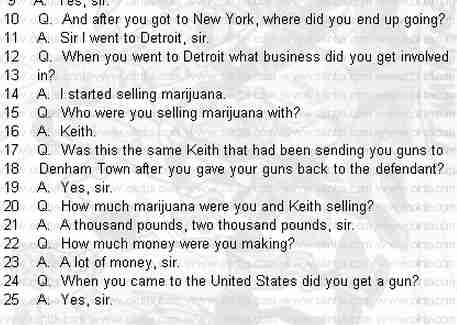
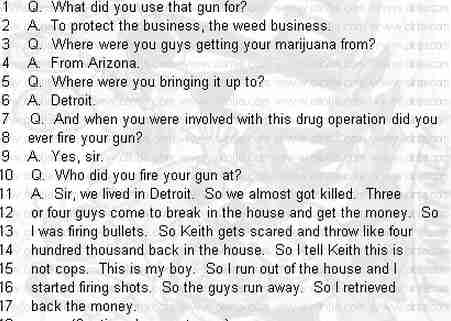
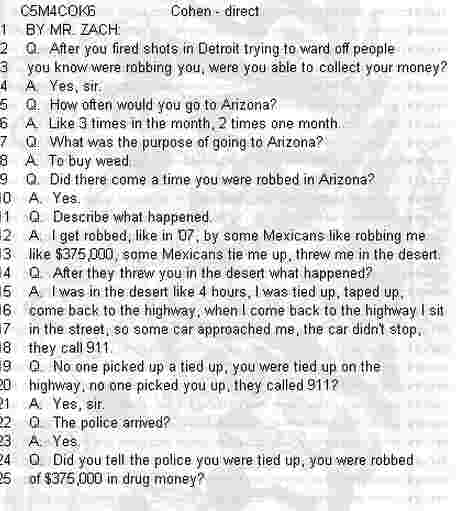
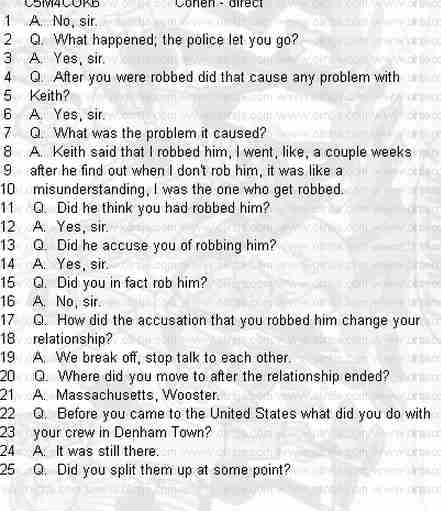
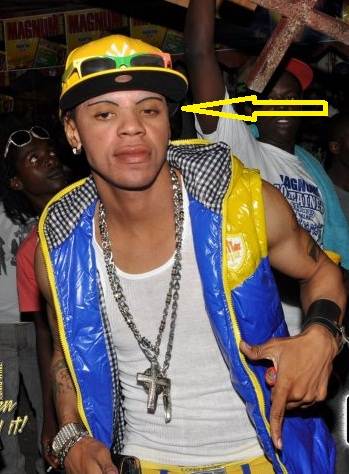

Recent Comments